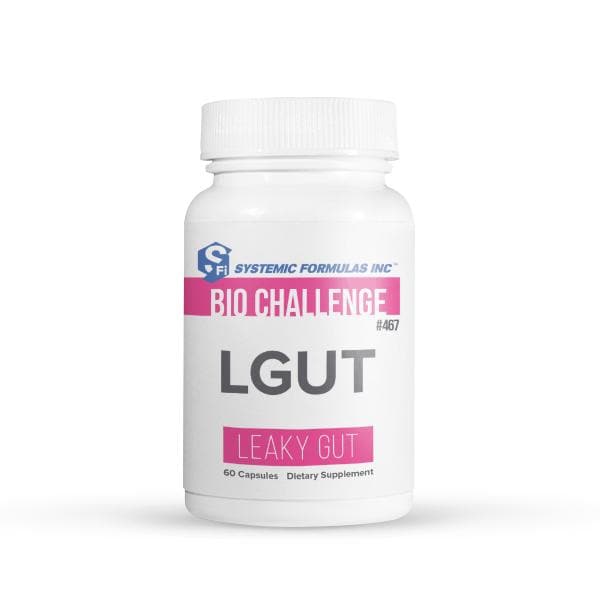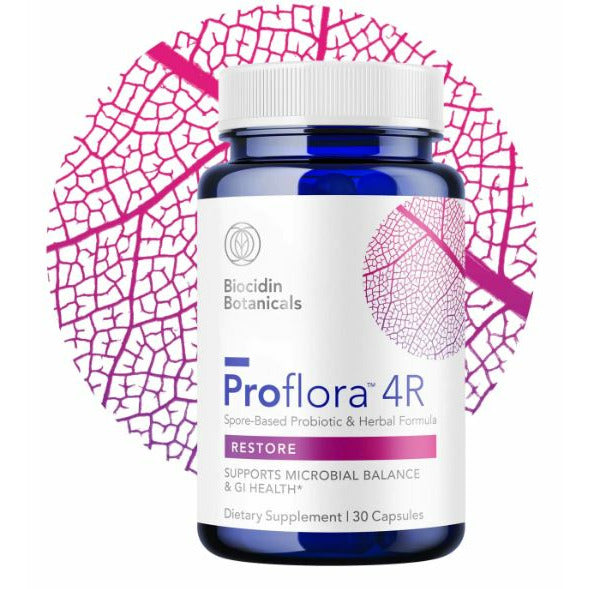Holiday Gut Health

Share
Halloween and the holiday season are just around the corner. That means we will be bombarded with many sweets and high-fat, high-calorie dishes for the next several months. This can put tremendous stress on the gut and gut health. In this article, we will discuss the dangers of sugar and how to protect the gut from sugar, processed foods, alcohol, and other unhealthy foods.
Tip #1. Decrease Sugar Consumption
One of the first things we must do is limit our sugar intake. Sugar consumption in the United States is ranked among the highest in the world per person. Sugar can be addictive, triggering the release of “feel-good chemicals” like dopamine in the body. Consider the following information on sugar:
- Up to 40% of the average American diet consists of added sugar and empty food calories.
- Americans 2 years and older should consume no more than 12 teaspoons of sugar daily. In 2017 and 2018, children and young adults consumed 17 teaspoons daily.
- Studies indicate excessive sugar intake is a key risk factor for obesity, type 2 diabetes, and cardiovascular diseases.[1]
Understanding how too much sugar affects the body can provide the incentive to decrease or eliminate its consumption. Here are more dangers of eating too much sugar:
- Tooth decay. Like the gut, bacteria live in the mouth as well. The bad bacteria thrive on sugar and create acid as a waste product when it is digested. This acid can; many of the teeth' enamel, which increases the risk of cavities and holes in the teeth.
Excess added sugars are the leading cause of tooth decay in children. Studies indicate most added sugars come from sweetened fruit drinks consumed at home.[2]
- Cancer. If consumed in excess, sugar can increase several key risk factors that can lead to developing cancer: inflammation, obesity, and oxidative stress. It is believed cancer patients crave sugar because cancer cells grow and multiply quickly, which takes a lot of energy, hence the strong desire for sugar.
Total sugar intake was associated with higher overall cancer risk, especially breast cancer. In addition, weight gain (often caused by high-fat, high-sugar diets) increases cancer risks.[1]
Tip #2. Use Natural Sugar Substitutes for Dishes and Recipes
An excellent way to decrease sugar consumption is to replace it with healthier natural sweeteners. For recipes that contain refined sugar, consider using one of the following top sugar replacements:
- Raw honey. One of the oldest sugar substitutes, it also has B vitamins and antibiotic properties. One cup of sugar is equal to ¾ cup of honey.
- Organic coconut sugar. Coconut sugar is 39% fructose, but it contains zinc, iron, antioxidants, and other nutrients. It is frequently used as a 1:1 swap in many white and brown sugar recipes
- Palmyra blossom nectar. Considered by many to be the highest-ranking sugar replacement, Palmyra blossom nectar comes from the sap of the Palmyra palm tree. It also contains magnesium, potassium, iron, and B-complex vitamins. Approximately 30% less Palmyra blossom nectar is needed to achieve the same level of sweetness as sugar.
- Maple syrup. Maple syrup comes from maple trees and is one of the most popular sugar alternatives. It can be used to replace sugar in most recipes. Use ¾ cup of maple syrup to 1 cup of sugar.
- Date syrup. Date sugar comes from dehydrated ground dates. It is high in potassium and among the richest in antioxidants. Slightly sweeter than refined sugar, it can be used as a 1:1 ratio with refined sugar or as little as 2/3 cup to 1 cup white or brown sugar.
Tip # 3. Avoid Artificial Sweeteners
To decrease refined sugar consumption, many products will contain artificial sweeteners instead. They taste like sugar but tend to have fewer calories. Here are the most popular artificial sweeteners:
- Sucralose
- Aspartame
- Saccharin
- Neotame
- Stevia leaf extracts
While the FDA considers artificial sweeteners safe for human consumption, studies indicate they could be hazardous to a person’s health:
- The amount of sucralose in a single-day sucralose-sweetened drink might far exceed the threshold for toxicological concern. In addition, researchers note sucralose increased the expression of genes associated with oxidative stress, inflammation, and cancer.[3]
- Artificial sweeteners may influence mental health. Individuals who consumed high aspartame diets were found to have more irritable moods, exhibited more depression, and performed worse on spatial orientation tests when compared to low aspartame diets.[4]
While studies on artificial sweeteners are still ongoing, limiting their consumption is advised.
Tip #4. Choose Foods That Promote a Healthy Gut
One of the best ways to protect the gut is to refrain from eating unhealthy foods and consuming alcohol... While this may sound simple, some may find this quite challenging, especially during the holidays. Here are some of the best and worst foods for gut health:
|
Best Foods For Gut Health |
Worst Foods For Gut Health |
|
Apples |
Fried foods |
|
Whole grains |
Foods containing antibiotics |
|
Yogurt |
Processed foods |
|
Legumes |
Condiments |
|
Beans |
Fatty foods |
|
Garlic |
High fructose corn syrup |
|
Leeks |
Spicy foods |
|
Onions |
Acidic foods |
|
Kale |
Lactose |
Before going to the office party, eat foods that help improve gut health. By eating beforehand, you could decrease the amount of unhealthy foods consumed later in the evening.
Signs of Poor Gut Health
There are several symptoms of poor gut health. Here are the most common signs to watch for.
- Upset stomach (gas, bloating, constipation, diarrhea, heartburn
- Skin irritation
- Food intolerance (gas, bloating, diarrhea, nausea, abdominal pain
- Unexpected weight gain or loss
- Autoimmune disorders
- Fatigue
- Sleep disturbances
Pay close attention to how your body responds to the foods you consume. Contact a physician if symptoms persist.
Holiday Gut Health Supplements
This holiday season, keep your gut healthy with these all-natural gut supplements:
Systemic Formulas: #467 - LGUT - LEAKY GUT MASTERY
Created by Dr. Shayne Morris, LGUT - Leaky Gut Mastery is the first line of defense against intestinal permeability, also known as leaky gut.  This product is packed with nutritional ingredients that help to decrease intestinal permeability, including zinc, apple cider vinegar, spearmint, aloe vera, goldenseal, and turmeric
This product is packed with nutritional ingredients that help to decrease intestinal permeability, including zinc, apple cider vinegar, spearmint, aloe vera, goldenseal, and turmeric
Proflora 4R Restorative Probiotic Combination
Proflora®4R contains a unique combination of aloe vera extract, marshmallow root, quercetin, and other powerful ingredients that provide a healthy  microbial balance and support for leaky gut. Key benefits of Proflora®4R include the following:
microbial balance and support for leaky gut. Key benefits of Proflora®4R include the following:
- Helps heal damaged intestinal mucosa
- Helps produce natural bacteriocins that can reduce harmful bacteria
- Assists in the digestion of food and the absorption of nutrients
ION* For Gut Health
ION* For Gut Health is a Terrahydrite mineral supplement that is derived from the soil. Terrahydrite is an aqueous humic substance that is alkaline and  carbon-rich. This product has been scientifically proven to stimulate the healing of the gut’s tight junctions with no harmful side effects.
carbon-rich. This product has been scientifically proven to stimulate the healing of the gut’s tight junctions with no harmful side effects.
ION* For Gut Health helps to heal the body’s internal firewall gently and naturally. This protects the body from bacteria, pathogens, infections, toxins, and other stressors.
Summary
Halloween is the start of several months of eating more foods and beverages that can be harmful to gut health. By understanding the dangers of excess sugar and knowing what foods benefit gut health, we can take the necessary precautions to maintain good health through the holiday season and beyond.
References:
- Charlotte Debras 1, Eloi Chazelas 1, Bernard Srour. Total and added sugar intakes, sugar types, and cancer risk: results from the prospective NutriNet-Santé cohort.Am J Clin Nutr. 2020 Nov 11;112(5):1267-1279. doi: 10.1093/ajcn/nqaa246. [PMID: 32936868]. https://pubmed.ncbi.nlm.nih.gov/32936868/
- Donald L Chi, Scarlett Hopkins, Diane O'Brien (et al). Association between added sugar intake and dental caries in Yup'ik children using a novel hair biomarker. BMC Oral Health. 2015 Oct 9;15(1):121. doi: 10.1186/s12903-015-0101-z. [PMID: 26452647].https://pubmed.ncbi.nlm.nih.gov/26452647/
- Susan S Schiffman 1, Elizabeth H Scholl 2, Terrence S Furey, (et al).Toxicological and pharmacokinetic properties of sucralose-6-acetate and its parent sucralose: in vitro screening assays. J Toxicol Environ Health B Crit Rev. 2023 Aug 18;26(6):307-341. doi: 10.1080/10937404.2023.2213903. Epub 2023 May 29. [PMID: 37246822].https://pubmed.ncbi.nlm.nih.gov/37246822/
- Glenda N Lindseth 1, Sonya E Coolahan, Thomas V Petros, (et al).Neurobehavioral effects of aspartame consumption. Res Nurs Health. 2014 Jun;37(3):185-93. doi: 10.1002/nur.21595. Epub 2014 Apr 3. [PMID: 24700203]. https://pubmed.ncbi.nlm.nih.gov/24700203/
